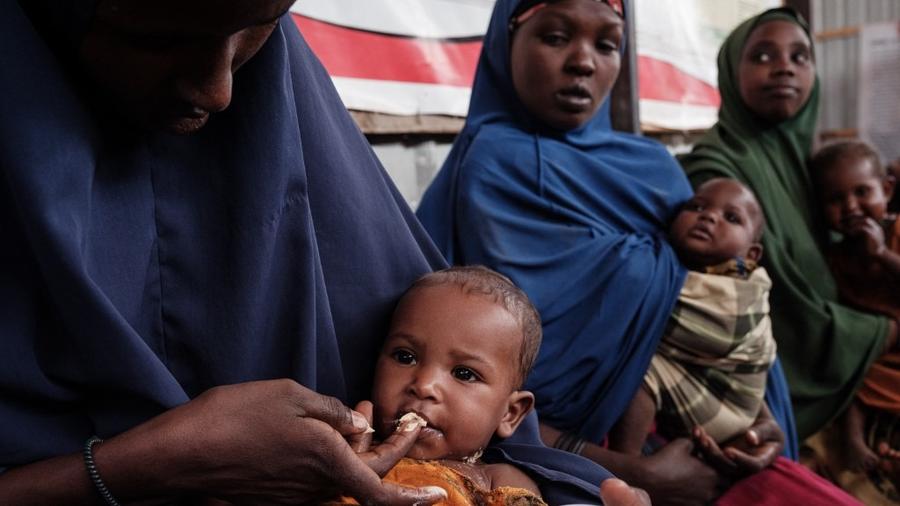 An eight-month-old child receives high nutrition foods at Tawkal 2 Dinsoor camp for internally displaced persons in Baidoa, Somalia on Feb 14, 2022. (YASUYOSHI CHIBA / AFP)
An eight-month-old child receives high nutrition foods at Tawkal 2 Dinsoor camp for internally displaced persons in Baidoa, Somalia on Feb 14, 2022. (YASUYOSHI CHIBA / AFP)
UNITED NATIONS - UN agencies are warning that millions of Somalis are at risk of sliding into famine as a result of a prolonged drought, a UN spokesman said Tuesday.
The impact of the drought continues to destroy lives and livelihoods, and growing needs outpace available resources for humanitarian assistance, said Stephane Dujarric, spokesman for UN Secretary-General Antonio Guterres.
ALSO READ: Six killed in suicide bombing in Somalia
The impact of the drought continues to destroy lives and livelihoods, and growing needs outpace available resources for humanitarian assistance, said Stephane Dujarric, spokesman for UN Secretary-General Antonio Guterres
The Food and Agriculture Organization, the UN Office for the Coordination of Humanitarian Affairs, the UN Children's Fund, and the World Food Programme are calling for urgent funding to scale up assistance, said the spokesman.
The appeal comes on the heels of a report that found 6 million Somalis, or nearly 40 percent of the population, are facing extreme levels of food insecurity. In addition, famine conditions are likely in six areas of the country. This is nearly a two-fold increase in the number of people facing extreme levels of acute food insecurity due to the drought and other shocks since the start of the year, he said.
ALSO READ: Somalia reviving ties with Kenya after nearly six months
Guterres made a phone call with Somali President Mohamed Farmajo on Monday. Guterres expressed his solidarity with Somalia in the face of increased Al-Shabab attacks and the drought the country is facing.
The UN chief also expressed his support for the new African Union Transition Mission in Somalia and the hope that Somalia would be able to ensure its own security as soon as possible. Guterres expressed the hope that there would be a swift conclusion to the electoral process and that any outstanding issues must be addressed through dialogue.


